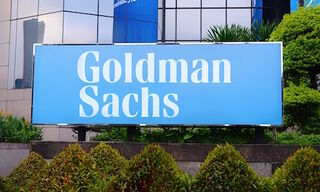Fitch: Hong Kong Policy Trajectory Risks Hub Status
Hong Kong's recent move to ease quarantines will do little to boost the economy, according to Fitch Ratings which warned that the city’s hub status was under threat from the current policy trajectory.
Despite Hong Kong’s ongoing efforts to inch towards reopening, the outlook remains bleak with Fitch Ratings recently underlining worries about the economy, fiscal health and the city’s long-term prospects as a financial hub.
«[T]he government’s apparent prioritization of broader national strategies and governance practices over economic competitiveness suggests a future policy trajectory that will increase risks to Hong Kong’s role as a leading center for international finance and commerce, in our view,» according to research note by Fitch.
«If these risks crystallize, it would leave the economy less dynamic, accelerate fiscal policy challenges associated with aging and potentially contribute to downward pressure on the territory’s credit rating.»
Little Impact from Quarantine Cut
As expected, the Hong Kong government announced earlier this week the easing of border controls but Fitch believes this «quarantine tweak» will have limited impact on the return of visitors.
«We anticipate the latest partial relaxation of inbound quarantine requirements, to three nights in a designated hotel followed by seven days of periodic testing, will do little to stimulate the return of tourists and short-term business travellers, who have grown accustomed to the absence of any such restrictions across most jurisdictions,» the note said.
GDP Revision
Fitch’s pessimism was reflected in the revision of its GDP forecast for Hong Kong this year to a 0.5 percent contraction from its 1 percent growth forecast published in early April. Its 2023 forecast remains unchanged at 3.5 percent growth with «no definitive end in sight to the Covid-zero policies pursued in mainland China, Hong Kong or Macau».
In real GDP terms, this would rank Hong Kong amongst the bottom 15 percent of all sovereigns and territories ranked by Fitch. In addition, Fitch also expects Hong Kong’s budget to reverse to a deficit after being balanced in the fiscal year of 2021.
Hong Kong has slipped into recession this year after its GDP shrunk 4 percent and 1.4 percent in the first and second quarter, respectively.



























